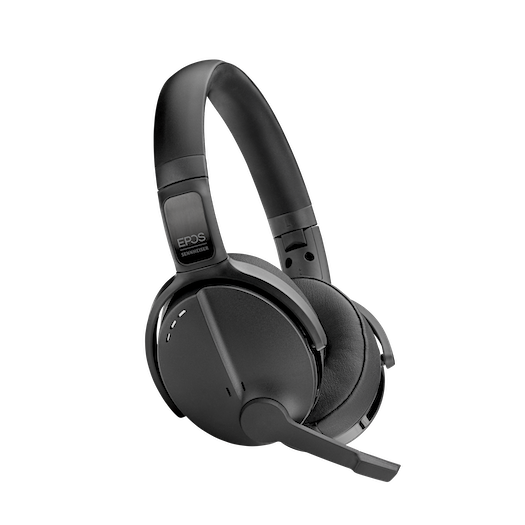Building on 115 years of experience in innovation and sound through its partner parent companies Sennheiser and Demant, EPOS aims squarely at business professionals and gamers around the world. The brand has focused its research around sound, voice and AI to perfect the audio experience, deliver innovative designs and performance and in so doing unleash human potential.
EPOS states in no uncertain terms its mission of enabling professionals to focus seamlessly on their task at hand and perform at their best.
The EPOS range is crafted with high-quality materials built to last while simultaneously affording comfort. However, the “real magic,” EPOS says, “happens when users experience the purity of sound, the clarity of speech and the difference they truly make to anything the user sets out to achieve ... The power of audio.”
EPOS launched in Australia last month in a session hosted by businessman Mark Bouris, EPOS Vice President Enterprise Solutions - APAC, Hong Kiat, and panellists Alyce Tran, Scott Bidmead and Jahan Sheikh from Microsoft.
Sheikh noted the importance of quality audio for remote working, especially relevant in the COVID-19 era, but how many workers have been sent home to find whatever microphones and headphones they can, only to find they experience frustrating dropouts, echoes, noises, distractions or other impediments. There is a well-established certification process for Microsoft Teams audio (going back to its predecessors including Lync), and it will be certified headsets that deliver the best result.
Similarly, Hong Kiat spoke about EPOS' research into understanding sound experiences in which the company determined the average conference call worker loses 29 minutes per week due to poor audio, out of an average of five hours and 18 minutes per week in such meetings.
Each time you find yourself saying "Can you please repeat that?" or not knowing what the actions arising from the meeting are leads only to direct cost to a company, multiplied over the number of attendees … for each and every meeting.
It doesn't even need to be remote work: 50% of workers surveyed stated audio distractions, like noisy co-workers, detract from their own performance.
It all adds up to poor sound quality, poor performance, poor customer experiences and ultimately poor revenues.
|
|
iTWire tested the EPOS ADAPT 560 - above the ADEPT's 360 and 460 models, and slightly below the top-end ADAPT 660.
True to EPOS' word, the ADAPT 560 is comfortable even after hours of continuous wear with soft ear pads. The sound is powerful, whether voice, music or anything else and remains crisp without distorting or being painful at high volume. The device feels robust and easily folds to slide into the included padded carrying case. It includes a USB Bluetooth adapter for those who need it, but otherwise pairs effortlessly with Bluetooth-enabled laptops and smartphones. It charges via USB-C and the battery easily lasted over a day. The boom microphone is especially nice, sliding up and down from the right ear. This also means there’s never a doubt which way is front-facing.
Not everything was perfect, although the gripes are minor. Firmware updates are only available via a Microsoft Windows application - no Mac OS X or smartphone options exist. Voice prompts for entering pairing mode could be improved. The on/off button is not labelled and is reasonably small so can be hard to find until you are used to it. The settings button operates via clicks, double-clicks, and long presses of two and four seconds instead of a menu of choices you toggle through so you either must remember or keep instructions handy. Still, none of these detracts from the quality materials and construction, the excellence of the audio experience, the long battery lifetime, and the sheer enjoyment of using the headphones.
With headquarters in Copenhagen, Denmark, EPOS operates in a global market with offices and partners in more than 30 countries.

Pictured: EPOS ADEPT 560 noise-cancelling Bluetooth Microsoft-certified headphones










































